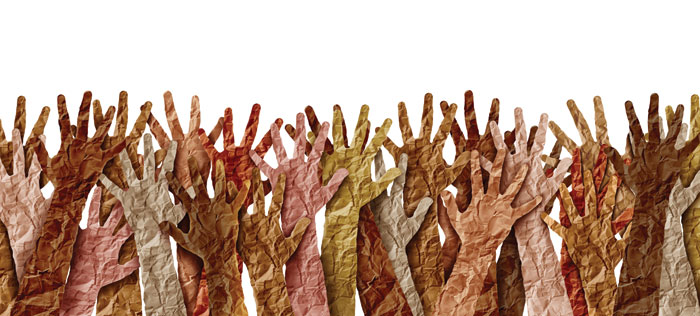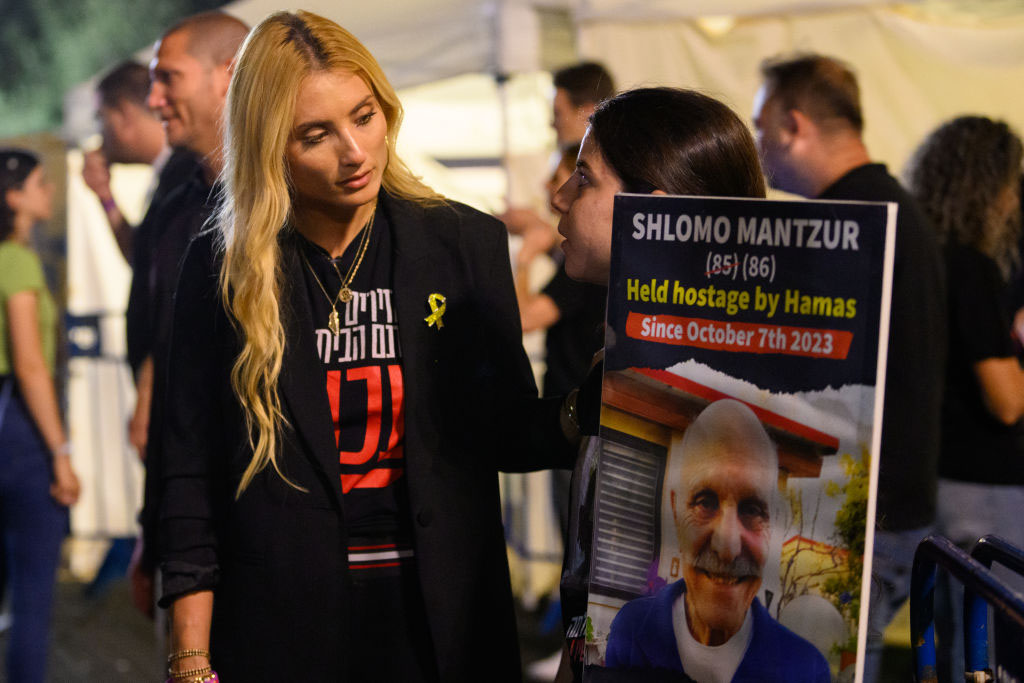
If one were to draw a straight line between recent controversies involving the Colleyville synagogue attack, Whoopi Goldberg, and Brooklyn College, respectively, one would find a common theme: the negation of Jewish identity.
The attack on Congregation Beth Israel in Colleyville, Texas was “not specifically related to the Jewish community,” an FBI agent said in a press conference afterward, even though the perpetrator’s stated intention had been to communicate with a rabbi in New York whom the attacker fancifully assumed controlled the fate of an imprisoned terrorist.
The Holocaust was not an example of Nazi genocide against the Jews, but rather a mere illustration of “man’s inhumanity to man,” Goldberg said on her talk show, “The View,” notwithstanding Hitler’s well-documented pronouncements about Jewish racial inferiority and his intention to eradicate European Jewry altogether. At Brooklyn College, the Department of Education’s Office of Civil Rights has opened an investigation into claims of anti-Semitic harassment, including a warning by an administrator to a Jewish student to “get your whiteness in check.”
Jews don’t conform to standard definitions of a racial, ethnic, or religious group, so the temptation to characterize all or most of them as white based on skin color is understandable, if problematic.
Increasingly, Jewish identity in America is subsumed by notions of “whiteness,” as the lens through which many Americans view race doesn’t allow for a nuanced understanding of Jewish identity. Jews don’t conform to standard definitions of a racial, ethnic, or religious group, so the temptation to characterize all or most of them as white based on skin color is understandable, if problematic.
But the consequences of diminishing Jewish identity and relegating Jews to the white and privileged class, as some of the Brooklyn College aggressors did, have already proven themselves to be serious. The Colleyville episode showed that it is possible, even though the FBI later walked back the agent’s remark, to dismiss an attack on a Jewish target as an essentially random occurrence.
The Whoopi Goldberg episode demonstrated that, even at a time when some Holocaust survivors are still living, the power of the Holocaust to educate younger generations has been devalued, as the central narrative of anti-Jewish genocide has been undermined. At Brooklyn College, two Jewish students in the graduate Mental Health Counseling program felt compelled to withdraw because of the stress of the harassment they endured on campus.
To see how little regard is paid to Jewish sensibilities with respect to cultural slights, one need look no further than the University of California’s instructional publication, “Recognizing Microaggressions and the Messages They Send.” The document provides a list of examples of comments that target individuals based on their memberships in “marginalized groups,” a category that seems not to include Jews or Israel supporters, despite the alarming degree of hostility directed toward Jews on UC campuses in recent years. We learn from UC’s list that the statement “America is a land of opportunity” is a microaggression, while none of the anti-Semitic tropes routinely used to bash Israel and intimidate Jewish students merit a mention.
But the gravest danger posed by the redaction of Jewishness from discussions about marginalized groups is the unsettling public apathy toward an antisemitism that has increasingly turned violent. In October 2018, the deadliest mass killing of Jews in American history occurred at the Tree of Life Synagogue in Pittsburgh. Other deadly attacks on Jewish targets have followed.
According to 2019 FBI hate crime statistics, Jews are overwhelmingly the most heavily targeted religious group in the United States. More than 60 percent of hate crimes in that category were directed toward Jewish targets in 2019. In May 2021 anti-Semitic violence spiked in the wake of clashes between Hamas and Israel.
Antisemitism comes from multiple sources: the far right, the far left, and Islamist extremists. All of these streams of Jew-hatred must be treated with great seriousness. They are all variations of an ancient social illness that has shown a unique ability to persist and adapt to modern circumstances.
The different forms of antisemitism that manifest themselves today find support across political, cultural, and religious lines. The overlap and interconnectedness of these viral hatreds has fed a normalization of antisemitism evidenced in public comments, violent attacks, the bullying of students, and the minimization of the Holocaust. It is also reflected in the callous indifference of those who claim to protect vulnerable groups but reflexively opt to treat Jews as privileged oppressors, regardless of the vulnerability of Jewish individuals and institutions.
As we continue to devise and implement strategies to confront antisemitism in the U.S. and abroad, it is important to ask, when did the diminution of Jewish identity become acceptable?
As we continue to devise and implement strategies to confront antisemitism in the U.S. and abroad, it is important to ask, when did the diminution of Jewish identity become acceptable? When did antisemitism stop being a form of oppression? When did it become OK to dismiss antisemitism as a distraction from other social or political priorities? Most of all, where are our allies?
The answers may be uncomfortable for some, but for Jews, the stakes couldn’t be higher.
Eric Fusfield is B’nai B’rith International’s director of legislative affairs and deputy director of the B’nai B’rith International Center for Human Rights and Public Policy.





















 More news and opinions than at a Shabbat dinner, right in your inbox.
More news and opinions than at a Shabbat dinner, right in your inbox.